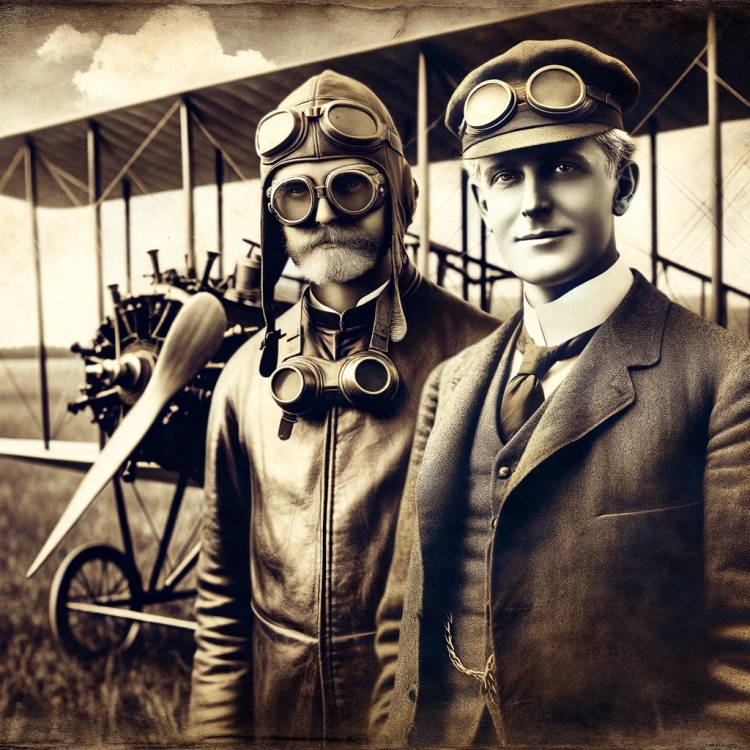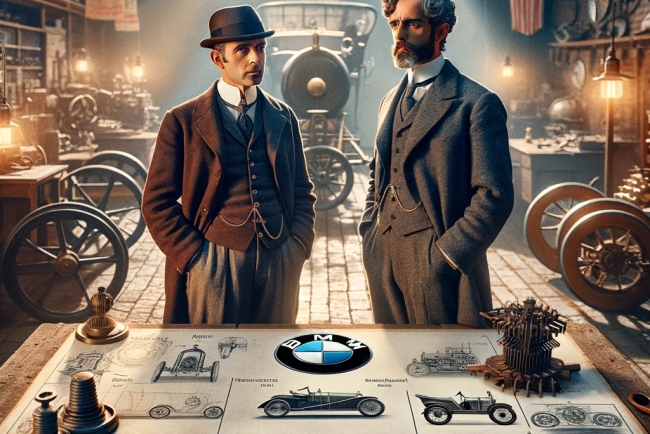The Legacy of William Boeing: Pioneer of the Skies
"The Legacy of William Boeing: Pioneer of the Skies" explores the remarkable journey of William Edward Boeing, from his early days as a visionary entrepreneur to the founding of the Boeing Company, which would become a global leader in aviation and aerospace. This detailed examination sheds light on Boeing's pioneering spirit, his innovative contributions to aircraft design and manufacturing, and how his passion for aviation helped shape the future of air travel. Through his relentless pursuit of excellence, William Boeing not only transformed the skies but also left an indelible mark on the world, demonstrating the power of vision, innovation, and perseverance. This feature delves into Boeing's legacy, highlighting how his work continues to influence the aviation industry and inspire future generations of aerospace pioneers.

Boeing: The Birth of an Aviation Pioneer
Boeing is recognized today as one of the leading names in the global aviation and defense industry. However, this colossal corporation's humble beginnings date back more than a century ago, starting with one man's dream of flight. In this blog post, I will share the story of how Boeing transformed into one of the world's largest aviation and defense companies.
William Boeing and the First Steps
The story of Boeing begins in 1916, in Seattle, Washington. William Edward Boeing was a wealthy timber industry magnate with a keen interest in flying. This passion led him to venture into the world of aviation and build his own aircraft. Boeing, along with engineer George Conrad Westervelt, produced an airplane named "B&W," marking Boeing's first step into the aviation industry.
The Establishment of Pacific Aero Products Co. and the First Order
In 1916, William Boeing founded his own company under the name Pacific Aero Products Co. This company was later renamed Boeing Airplane Company in 1917, becoming known worldwide. Boeing received a significant order from the US government during World War I. This was the company's first major success, cementing its position in the aviation industry.
Innovation and Expansion
Throughout the 1920s and 1930s, Boeing played a pioneering role in the aviation sector by introducing significant innovations. The Model 247 was a revolutionary commercial aircraft that served as the precursor to the modern passenger airplane. During this period, Boeing also led the way in air mail services, expanding the civil and commercial use of aviation.
World War II and Beyond
During World War II, Boeing contributed significantly to the war effort by manufacturing bombers like the B-17 and B-29. In the post-war era, the company focused on developing jet-powered commercial aircraft, launching the jet age with the 707 model. The introduction of the Boeing 747 Jumbo Jet in 1969 marked a turning point in aviation history, transforming international travel.
A Global Aviation Giant
Over the years, Boeing expanded into defense, space, and security sectors. The company has become a global aviation and defense corporation by continuing innovation and through strategic mergers and expansions. Today, Boeing serves airlines, governments, and private sector clients worldwide.
Boeing's story is an inspiring journey from modest beginnings to becoming a global leader. The company is renowned for its innovations in the aviation and defense industries. William Boeing's vision has shaped how people travel through the sky for more than a century. As an aviation pioneer, Boeing continues to push the boundaries of the future.
William Edward Boeing: The Visionary Behind the Aviation Legend
William Edward Boeing is a figure who revolutionized the aviation industry in the early 20th century. His vision, determination, and innovative approach propelled Boeing to become one of the largest aviation and defense companies in the world today. This blog post will delve into the life, career, and contributions of William E. Boeing, the founder of Boeing, to the aviation sector in detail.
Early Life and Education
William Edward Boeing was born on October 1, 1881, in Detroit, Michigan. His father, Wilhelm Böing, was a wealthy miner and lumber merchant who had emigrated from Germany to America. His mother, Marie M. Ortmann, belonged to one of Detroit's affluent families. Boeing spent his youth being educated in Europe and attended Yale University, though he left before completing his engineering degree.
Entry into the Lumber Industry
After leaving university, Boeing ventured into the lumber industry in the state of Washington. Here, he gained valuable experience in lumber processing techniques and business management. Boeing became a wealthy businessman during this time, which he would later use to pursue his passion for aviation.
First Steps into Aviation
Boeing's interest in aviation turned into a serious passion in the 1910s, particularly after visiting an aviation fair in 1915. He decided to build and fly his own aircraft. To achieve this, he partnered with George Conrad Westervelt, an experienced seaplane designer. Together, they designed and built Boeing's first airplane, the B&W Seaplane. This success encouraged Boeing to establish his own aviation company.
The Founding of Boeing Company
In 1916, Boeing founded his own company, Pacific Aero Products Co., in Seattle. A year later, the company was renamed Boeing Airplane Company. The company received a large order from the US government during World War I, solidifying Boeing's position in the aviation industry.
Innovation and Expansion
William Boeing always placed a great emphasis on innovation while managing his company. In the 1920s and 1930s, he broke new ground in civil aviation with innovative designs like the Boeing 247 commercial aircraft. Boeing also expanded the commercial potential of aviation through air mail services.
Legacy
William E. Boeing stepped down from the company management in 1934 due to government regulations on aviation companies. However, his legacy continues through the foundations laid under his vision and leadership. Boeing has remained a world leader in the aviation and defense industries.
William Boeing passed away on September 28, 1956, at the age of 74. His life left a lasting imprint on the aviation sector. He is not just remembered as a businessman but also as a visionary and innovator in the history of aviation. William Boeing's legacy lives on with every flight and aircraft produced by Boeing. His contributions to the aviation industry make him one of its most significant figures.
What's Your Reaction?




















